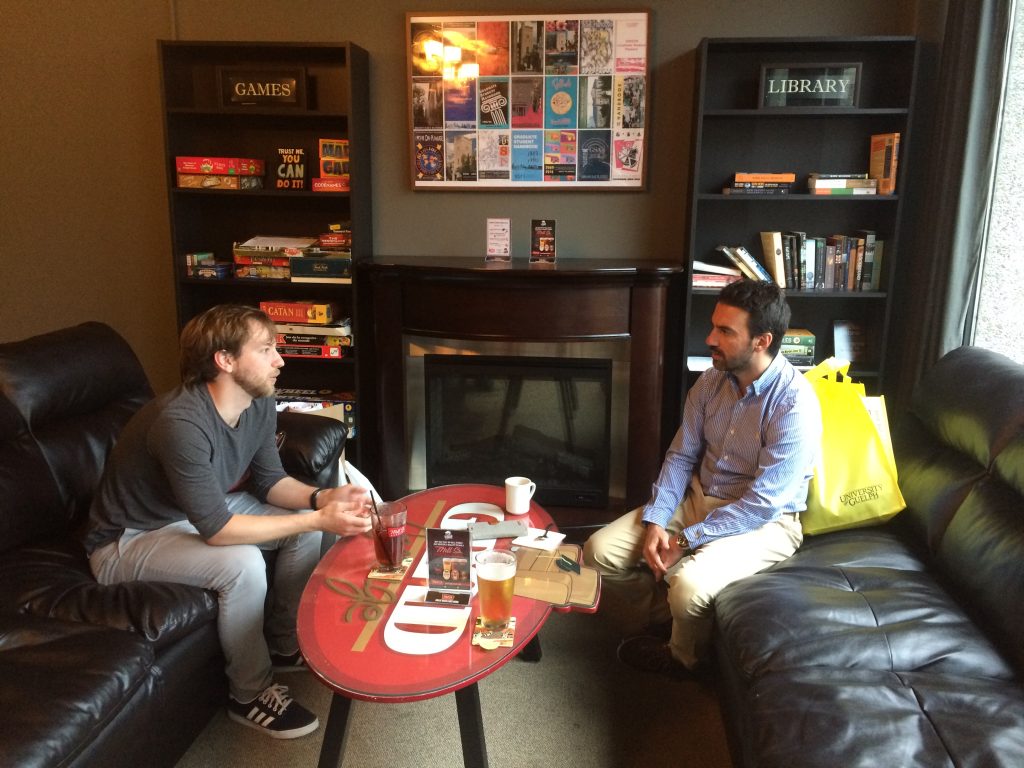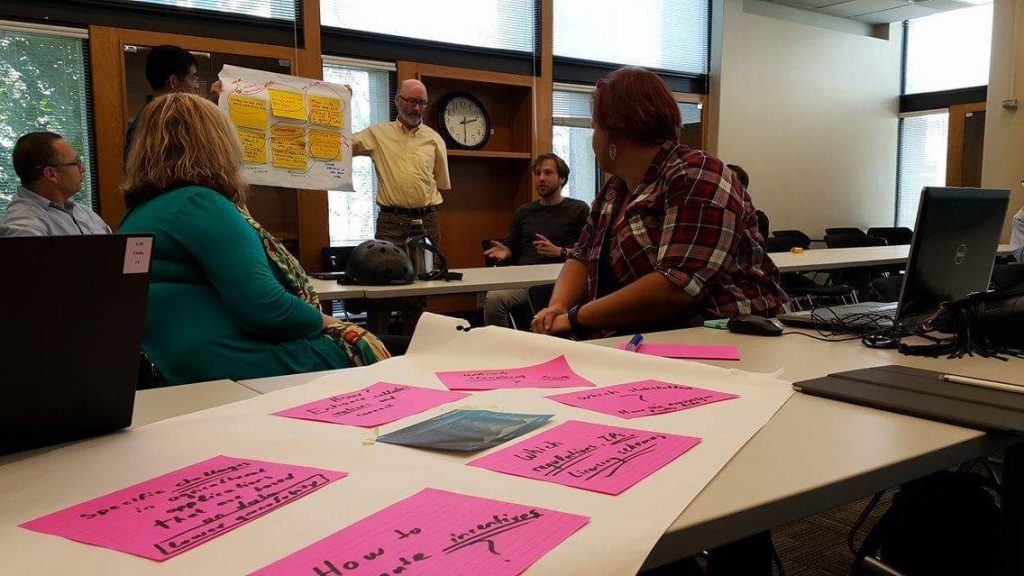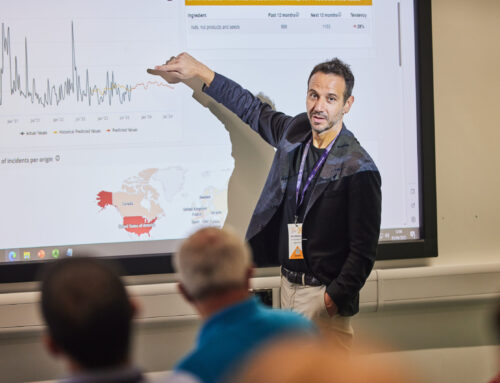
As part of the Ontario Open Agri-Food Data meetup that we have co-organised in Canada earlier this year, we had the opportunity to meet with a range of academics from the University of Guelph and staff from Grey County to talk about agricultural innovation and open data. Knowledge-sharing between organisations is increasingly a concern for those in the sector to complement each other’s work, learn from each other’s insights and collaborate to create value in the sector.
Grey County is a county of Ontario, Canada. Quite progressive, dedicated to managed, sustainable growth while also offering heritage, history, natural beauty, a clean environment, and agricultural production. When we met them, Grey County were a few weeks away from their first rural innovation and ag-tech showcase, the Ag 4.0 Summit + Innovation Tour, and planning its first tech-competition, Apps for Ag. It was exciting to meet Ashleigh Weeden that leads Grey County’s Connected County Initiative, which seeks to support Grey County’s residents, businesses, and institutions in leveraging the broadband economy for community development.
Ashleigh sees immense opportunity for open data and technology to continue shifting the economies and employment opportunities in rural communities. “Rural communities have always been resilient, and agriculture has always been an incredibly technical and innovative sector. Now the rest of the digital economy is seeing and seizing those opportunities,” said Ashleigh at the meetup. She also highlighted the need to “make sure all the different agricultural stakeholders are talking and sharing their data”.
Ashleigh was thrilled to find out that there are communities in Europe that have very similar needs. The idea of using social media data as a collective and open knowledge resource seemed to be promising and exciting.

Brainstorming sessions during the open data meetup.
Information sharing is also at the core of Feeding 9 Billion, a food security initiative based out of the University of Guelph, provides insight, outreach, & education around issues of food, agriculture & hunger globally. This has become more relevant than ever to the University, as it aims to become a Canadian and world hub for such development in a multi year project called the “Food from Thought Initiative” which will look at using digital data to improve all aspects of farming and reduce waste. We had the opportunity to discuss with Prof. Evan Fraser, Canada Research Chair in Global Food Security, Director of the Food Institute at the University of Guelph in Ontario, and Scientific Director of the Food from Thought Initiative.
The new initiative has been heavily promoted by Canadian press, quoting Evan on the importance of the project: “We’ll have to cut back on waste. We’ll have to be more efficient with inputs such as water and nitrogen and fertilizer. We will have to be eating the kinds of food that are ecologically efficient to produce. That combination of strategies ultimately will allow humanity the flexibility to address climate change while feeding the world’s growing population. We work to offer objective, evidence-based information in an accessible manner for all. We are particularly committed to working with youth, helping them to improve the food system of the future.”.
Although the project emphasis is put on Canadian farmers and the food industry, during the meetup the Guelph team pointed out that the work will be of substantial interest in the global context, informing agriculture and agri-business debates at such forums as the United Nations – such as who owns new data and has access to it and in advancing farming practices and policies elsewhere in the world.
This is at the core of our discussions within the Global Open Data for Agriculture and Nutrition (GODAN) initiative. We have agreed with Evan to follow up on this discussion and to explore further the global connections that can be made across initiatives and networks. Eventually, trying to put the needs of small, local communities at the forefront of the collective problem-solving efforts of such excellent scientists.
(this post has partially used content from an initial blog post co-authored by Bianca Wylie, Ashleigh Weeden, and Nikos for the Open Data Institute and an online article by Radio Canada International)




